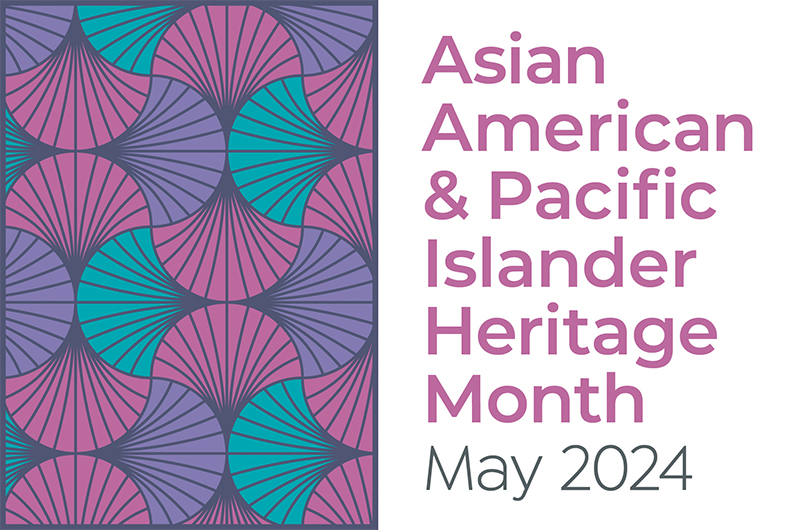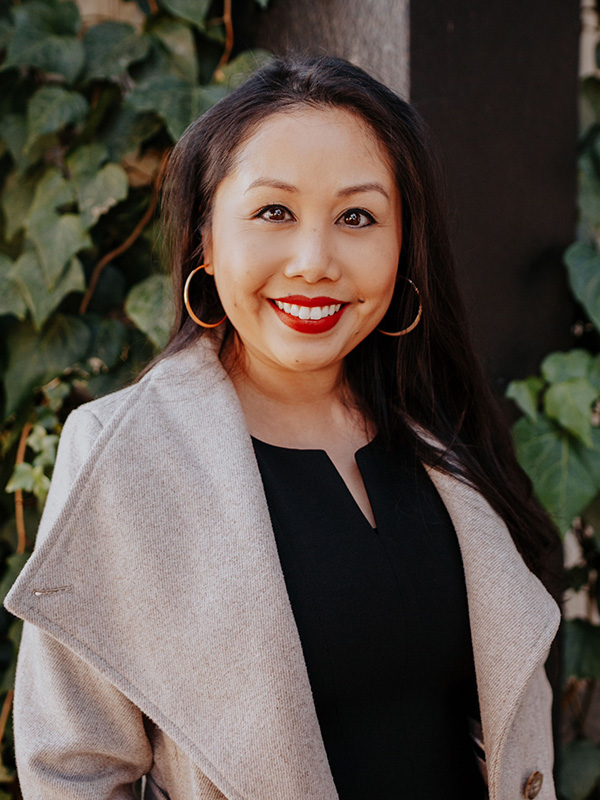 During Asian American and Pacific Islander Heritage Month, Sandy Woo-Cater, System Project Lead for the Human Trafficking Response Program, discusses the importance of health equity as a focal point in addressing human trafficking.
During Asian American and Pacific Islander Heritage Month, Sandy Woo-Cater, System Project Lead for the Human Trafficking Response Program, discusses the importance of health equity as a focal point in addressing human trafficking.
Content Warning: The following interview contains sensitive topics including human trafficking, terminal illness and warfare.
Q: How has your expertise on the issue of human trafficking shaped your thoughts around health equity?
 Sandy Woo-Cater, System Project Lead for the Human Trafficking Response Program Sandy Woo-Cater, System Project Lead for the Human Trafficking Response Program |
A: Coming into health care with a social science and direct services background has been instrumental to my work at CommonSpirit Health. For the past twenty years, I’ve been committed to addressing human trafficking through various roles and industries.
Prior to health care, I had the privilege of not only engaging in historical research on the topic of human trafficking, but I also had the honor of walking alongside countless individuals and families who were actively fleeing trafficking situations. Understanding the historical landscape of how present-day social inequalities came to be, I witnessed in real-time how their ongoing consequences drive human trafficking activity. Ultimately, we know that experiencing human trafficking can result in negative health outcomes, but what I found interesting during my years in direct services was that untreated chronic illnesses and injuries, or unmet psychiatric needs, were at times precursors to a person’s trafficking experience.
Q: What are some examples of how human trafficking and health inequities can intersect?
A: Serving people who needed a reminder that they are loved was truly an honor of a lifetime. I met people from all around the world. I will never forget their stories and am constantly reminded of how human trafficking and health inequities are intertwined.
One woman, whom I still hold in my heart, was unfortunately diagnosed with cancer. She was lured to California by her trafficker and was sold the dream of spending the rest of her precious days in the sun near the Pacific Ocean. Unfortunately, when she arrived nothing was how she had dreamed. Not only did she endure unfathomable levels of physical and psychological violence, she was also kept from getting the cancer treatment she desperately needed. Although we were able to collaborate with community partners to get her back to her home state, she continued to face systemic barriers to safety and a stable situation where she could focus on her health. I still think of her today.
Another person I think of often is a boy who was lured to the United States from Nigeria. He had lost his father to violence at a very young age and grew up in a conflict zone. His mother did all she could to protect her children and was constantly hiding them from militant rebel groups. A trafficker from the United States convinced the family that this young boy could flee the constant violence and come to the U.S. to earn an American education through a high school basketball academy. Unfortunately, upon his arrival to the States, his journey took a very dark turn. The few times he was allowed to present at a hospital for injuries, no one ever suspected him to be a victim of human trafficking. I will never forget how much he cried the first time we conversed in my office. It was just past his 18th birthday and it was the first time anyone had told him what happened to him wasn’t his fault, and that there was a term for it all: human trafficking. Because of systemic barriers and his undocumented status, he ultimately chose to continue living with his trafficker where he lacked access to consistent food and health care. My heart remains broken for him and his family.
Q: How does your heritage inspire you to continue your work?
A: I proudly come from a long legacy of love, courage and resilience. Like many others, my family’s migration story includes triumph over insurmountable challenges. I’m the first person in my family to have the privilege of formal education and full access to literacy. I don’t take for granted any of the sacrifices my family has made to benefit my generation, and recognize that the barriers we experience(d) are very similar to those faced by many trafficking victims and survivors.
With these thoughts in mind, I continue my commitment to serving marginalized communities who have been made vulnerable to human trafficking and exploitation by social inequalities. I’m driven to further innovate systemwide strategies to support patients experiencing abuse, neglect or violence — especially human trafficking — who are also from communities that have survived historical trauma. This work in particular is an opportunity to illuminate how cultural wisdom and generational resilience can bring forth healing.
More Information
To learn more about CommonSpirit’s Human Trafficking Response Program, visit our Google site.
Woodland Clinic’s cardiac specialists are part of an integrated care team focused on your health and wellbeing. Our cardiologists work alongside your primary care physician to ensure fully seamless care by:
We can help.
Visit our website to learn more about cardiology, other services and locations near you.